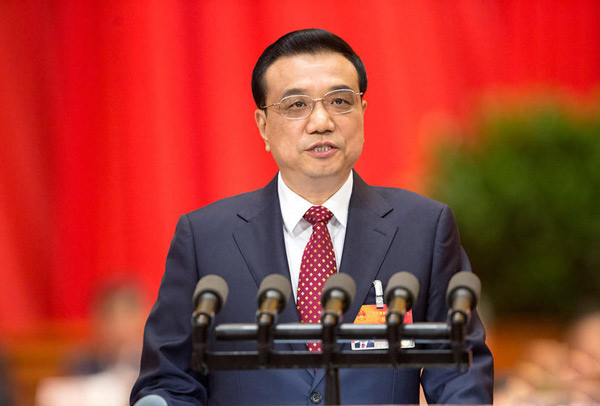Chinese economy: high time for innovation as an engine
By Amitendu Palit (China Daily) Updated: 2015-03-06 08:22
 |
|
Chinese Premier Li Keqiang delivers a government work report on the opening day of the third session of the 12th National People's Congress in Beijing, March 5, 2014. [Photo/china.com.cn] |
In Premier Li Keqiang's Government Work Report on Thursday, "innovation" was shown as being of great significance for the Chinese economy in its new normal.
China's economic growth has been slowing for some time. Though still at 7.4 percent in 2014, the government's target is around 7 percent in 2015. This will be well below the long-term average rate of growth that the Chinese economy has been recording for several years.
There are global implications for the slowdown in the Chinese economy. China is not only the world's largest exporter of goods, it is also the second-largest importer of goods. At the same time, it is also the world's second-largest importer of commercial services. Thus, apart from being the main source of a variety of manufactured items for the rest of the world, China has also been a big engine for the global consumption of goods and services.
The effect of lower demand from the Chinese economy is already being felt on exports of natural resources and commodities. Chinese demand has been driving the demand for oil, coal, minerals and a large number of other commodities over the last two decades. Global prices of these commodities are now falling sharply. Countries relying heavily on exports of these commodities, including resources exporters in Asia, the Americas and Africa, are already feeling the pinch of less Chinese demand.
Revival of consumption and greater absorption of imports by China will depend on how fast its economic growth picks up. Historically, China has followed a model where growth has received its primary push from investment. The important question now is whether the Chinese authorities will continue to follow this approach.
Although much has been said about foreign investments in China, there is no denying that the Chinese economic success would not have happened without large State investments. Investments in infrastructure and other public goods were accompanied by a generous supply of credit to export-oriented enterprises. However, there could be a problem in using the same strategy now.

I’ve lived in China for quite a considerable time including my graduate school years, travelled and worked in a few cities and still choose my destination taking into consideration the density of smog or PM2.5 particulate matter in the region.











